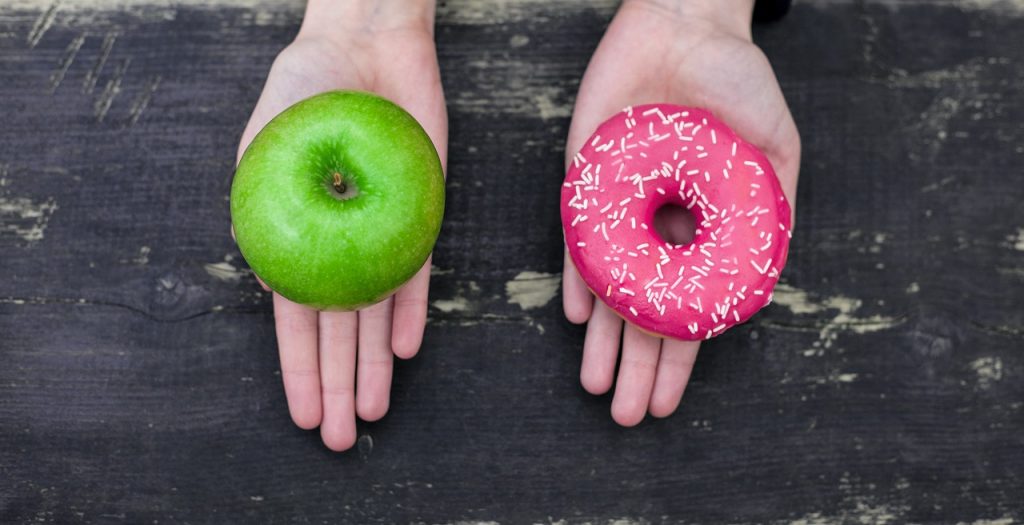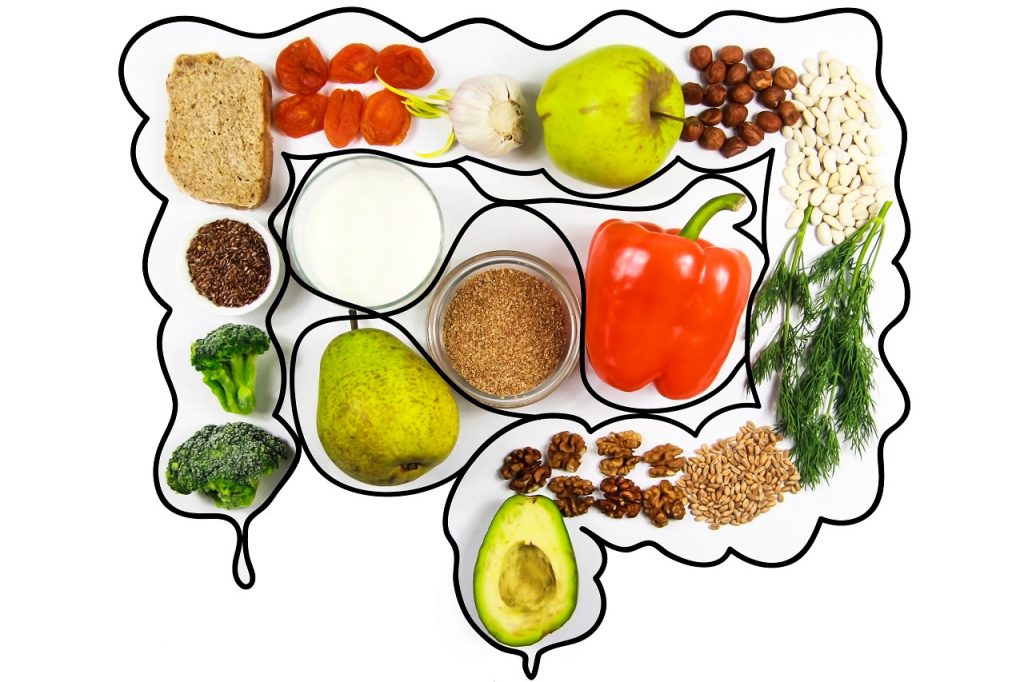 How often are you worried about that sneaky fat creeping up around your mid-section, a bloated belly after you eat or low energy sabotaging your workout? What do all of these have in common? They’re all reflections of the direct relationship between sluggish digestion, slow metabolism and weight gain. Overeating during the holidays and engaging in less physical activity means this process can really snowball in the winter.
How often are you worried about that sneaky fat creeping up around your mid-section, a bloated belly after you eat or low energy sabotaging your workout? What do all of these have in common? They’re all reflections of the direct relationship between sluggish digestion, slow metabolism and weight gain. Overeating during the holidays and engaging in less physical activity means this process can really snowball in the winter.
However, The Good News!
By increasing digestive efficiency with diet, lifestyle and targeted supplements, we can effectively shed extra fat, boost metabolism and support nearly every other area of health in the process.
Good digestion goes beyond the idea that “You are what you eat”.
Digestion is at the very center of our core health. It sets the foundation for health, happiness and well-being. We now have greater insight into the many roles digestion plays in immunity, hormone balance, and even mental and emotional health.
Traditional healing practices around the world, especially traditional Asian medicine, have long recognized these relationships. In fact, some Eastern medical systems treat nearly every disease by addressing the digestive system. And most often, when we optimize it, everything else comes into balance — particularly, the bathroom scale.
Herbs & Supplements For Digestion
The close relationship between herbs and supplements are mirrored by the fact that certain nutrients and herbs that support digestion also increase metabolism. They work by promoting mitochondrial function while also encouraging efficient nutrient breakdown and assimilation.
Other digestive-supporting herbs and ingredients work by increasing digestive enzymes, improving circulation while helping to soothe inflammation in the gastrointestinal tract and throughout the body.
Black Pepper & Other Spices
Pungent culinary herbs and spices have long been recognized as digestive aids. Their strong aromas and spicy flavors stimulate the production of digestive enzymes for better food breakdown. They also bring warmth and circulation to the system to clear stagnation.
Their strong antimicrobial properties generally promote a healthy digestive environment. And now, researchers are finding that such long-cherished digestive aids also work in other ways to promote healthy weight. For example, black pepper, a spice that has been cherished for its ability to support digestion, works on a genetic level to block the formation of fat cells, helping to control weight. Black pepper is also mixed with the amazing Curcumin (Turmeric extract) to boost metabolism and weight loss.
Probiotics
Another factor that affects digestive health is the use of Probiotics. These friendly bacteria evolved with us to offer countless health benefits — particularly for digestion. New roles for these bacteria are continually being revealed.
Around the world, fermented probiotic foods, such as sauerkraut and miso, have been used for digestive and overall health. Probiotics help break down food into essential nutrients and efficiently eliminate wastes.
They control inflammation, support immunity and keep harmful bacteria at bay, while producing numerous enzymes and nutrients we need for digestion and overall health. Unsweetened yogurt is the easier bet to get your share of Probiotics. But, a new research shows these also play a key role in healthy weight management.
One Probiotic species in particular, Lactobacillus Gasseri, has been shown to reduce visceral fat (the dangerous fat around your midsection), by up to 9 percent after three months.
Cinnamon, Cardamom, Turmeric (Curcumin) & Ginger
The herbs Cinnamon, Cardamom, Turmeric (Curcumin) and Ginger are also excellent to improve digestive capacity, support metabolism and reduce inflammation. Asian medicine uses ginger to treat stomach aches. It’s generally considered safe when taken in small doses i.e. 1 to 3 grams per day.
They help warm the digestive system and reduce occasional digestive discomfort, and support healthy digestive function, metabolism and nutrient absorption.
Since digestion and metabolism are so closely linked with other systems of the body, it’s critical to take a holistic approach for healthy weight management and overall wellness. Stress in particular can wreak havoc on all systems but is especially harmful to digestion and metabolism.
Regular meditation and mind-body stress relief practices such as yoga and Tai Chi can help reduce inflammation, increase energy production and support overall digestion. In fact, almost any type of regular exercise can significantly support digestive and metabolic health. Good eating habits are also important. Our mothers were right when they said, “Don’t skip breakfast“. You can throw your metabolism out of balance and cause extra fat storage.
Chew Slowly
Thorough chewing of food and eating at a relaxed pace benefits digestion and weight in two ways, firstly, the extra chewing breaks down food more thoroughly, making it easier to absorb nutrients. Secondly, by proceeding slowly it allows time for your brain to receive the signal that you’re full, reducing the chance of overeating.
Whether you’re someone who eats to live or lives to eat, improving your digestion with targeted natural solutions produces ripple effects across all areas of health, not just weight. The first things you’ll notice when your digestion is functioning better are increased energy, less bloating, reduced water retention, more efficient elimination and a better sense of overall well-being.
If this article helped you, let us know your thoughts in the comments below! Find more articles on weight loss here or get these tips directly from a GOQii Coach by subscribing to Personalised Health Coaching here.
#BeTheForce
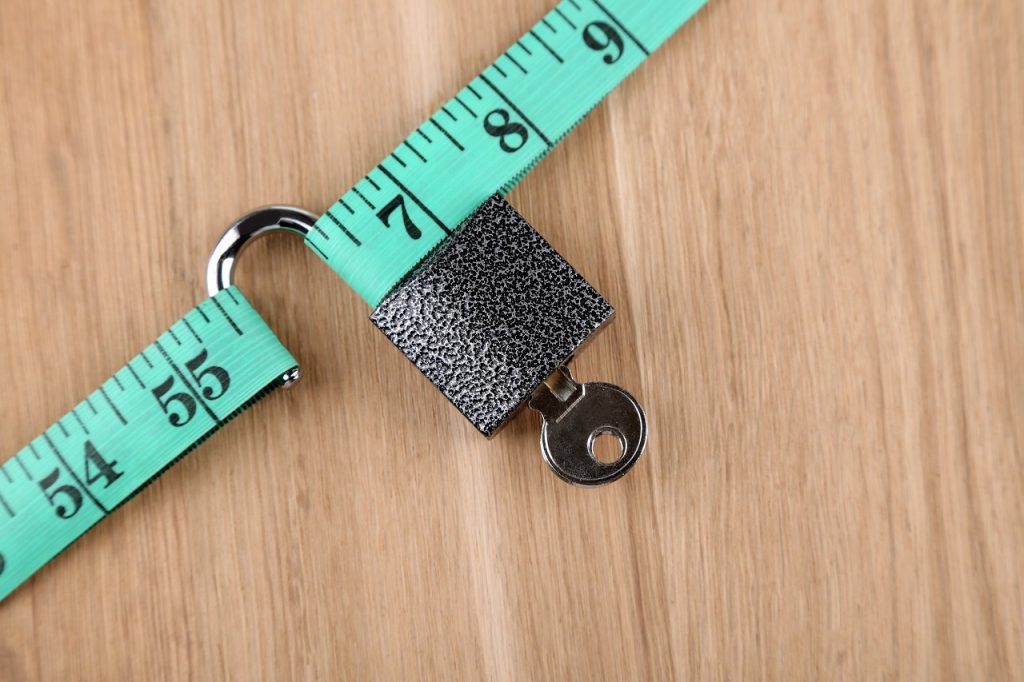
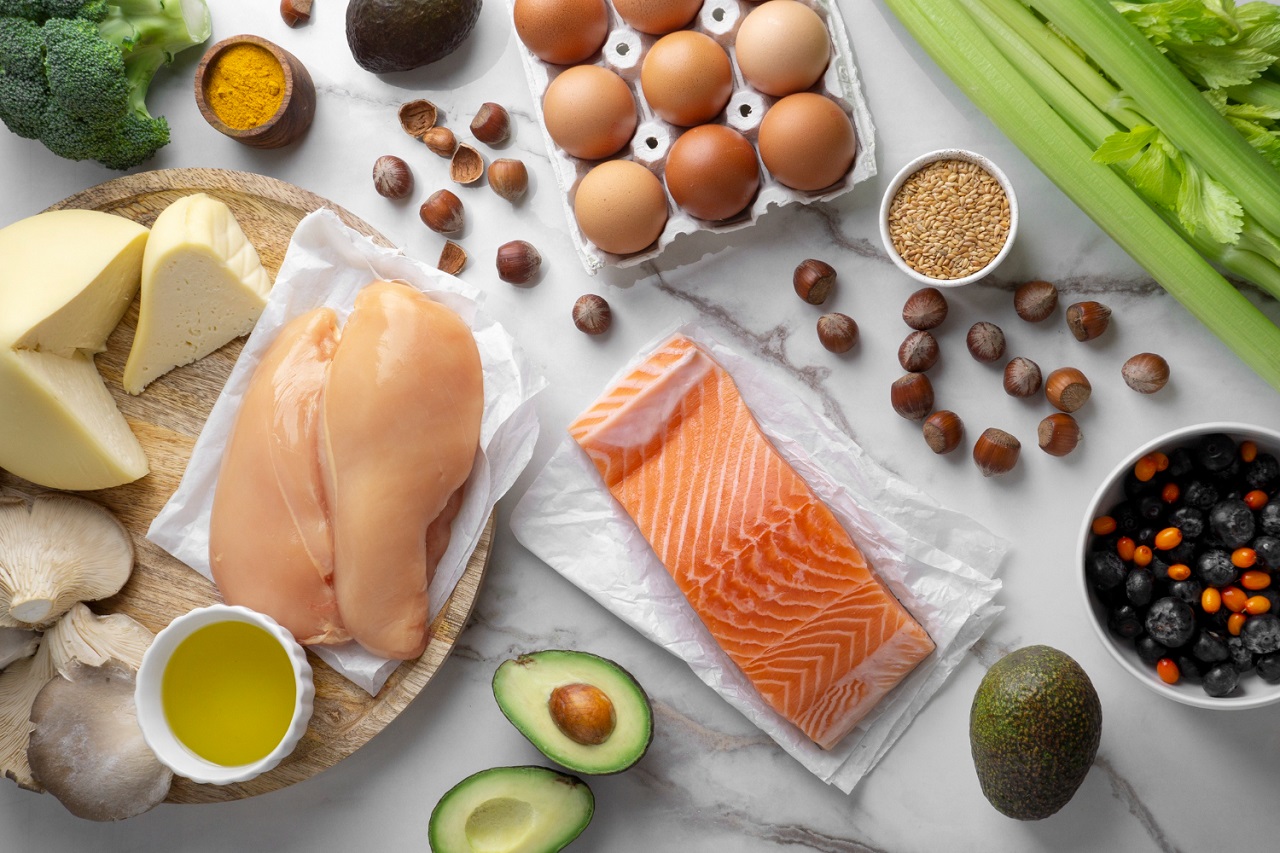 Protein is essential to fat loss, as it maintains your muscle during a calorie deficit. It keeps you satiated, which prevents overeating and snacking on junk food. Also, it boosts your calorie burn throughout the day because takes more energy to digest as compared to carbs or fat. Eat at least one gram of protein per pound of bodyweight every day and get your protein from whole sources like nuts, eggs, lean meats, yogurts, and quality protein powders.
Protein is essential to fat loss, as it maintains your muscle during a calorie deficit. It keeps you satiated, which prevents overeating and snacking on junk food. Also, it boosts your calorie burn throughout the day because takes more energy to digest as compared to carbs or fat. Eat at least one gram of protein per pound of bodyweight every day and get your protein from whole sources like nuts, eggs, lean meats, yogurts, and quality protein powders. Vegetables are loaded with important nutrients and are low in calories and carbs. The fiber in your greens aids digestion and also provide your body the essential antioxidants it needs. Including them might help you break through the weight loss plateau.
Vegetables are loaded with important nutrients and are low in calories and carbs. The fiber in your greens aids digestion and also provide your body the essential antioxidants it needs. Including them might help you break through the weight loss plateau.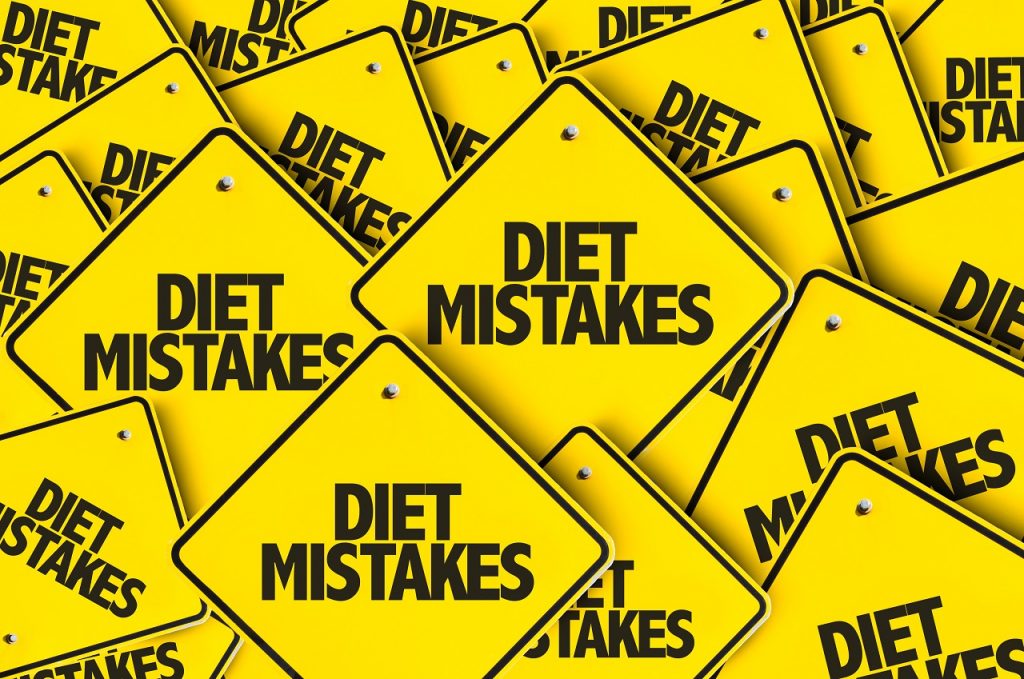 The internet can be useful, there’s no denying it. Those fun DIY tricks and videos that can help you learn a new skill-set are pretty awesome indeed! But everything in this world has a downside and sadly, the internet has one too! While the internet helps you discover new things every day, it also leads you to fake news, tips and ‘hacks’ for instance – Quick Fat Loss Tips or Lose Fat in 10 days.
The internet can be useful, there’s no denying it. Those fun DIY tricks and videos that can help you learn a new skill-set are pretty awesome indeed! But everything in this world has a downside and sadly, the internet has one too! While the internet helps you discover new things every day, it also leads you to fake news, tips and ‘hacks’ for instance – Quick Fat Loss Tips or Lose Fat in 10 days.